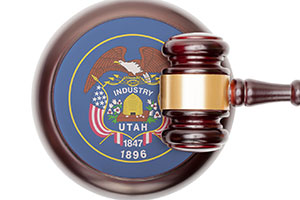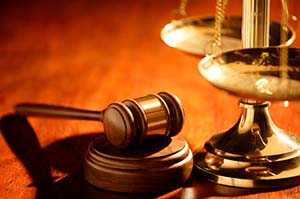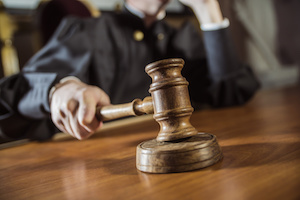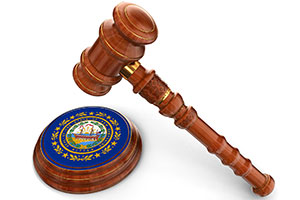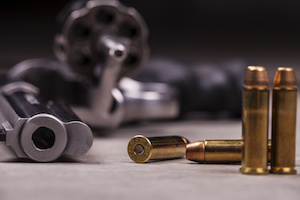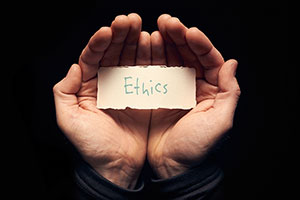The phrase “human trafficking” conjures images of buying or kidnapping children or young women from impoverished countries and selling them as slaves in developed countries. Those images do not necessarily produce an accurate understanding of “human trafficking” as governments have chosen to define it. While trafficking in the sense of buying and selling humans is prevalent in some parts of the world, it is uncommon for victims from other countries to be trafficked into the United States.
A more common use of the term “human trafficking” in American law is presented in a recent appellate decision in Utah. The case involved a fairly routine charge against an adult who managed and directed the prostitution of a minor. Since that is not what “human trafficking” brings to mind, the prosecution called an expert witness to explain why the crime fit within Utah’s definition of human trafficking.
Facts of the Case
The 22-year-old daughter of Joseph Moore met a 16-year-old girl identified in the appellate decision as “Mindy.” Moore’s daughter told Mindy that they could each make $200 to $300 each time they teamed up for a sexual encounter with men they would meet through a website. Mindy agreed because she wanted money to support her drug habit.
Moore’s daughter introduced Mindy to Moore, who offered to help them provide services to men. He signed papers so that Mindy could obtain a piercing. He helped Mindy and his daughter create online profiles, drove them to their appointments, and remained in the car to provide security. In exchange, he received about 40{d61575bddc780c1d4ab39ab904bf25755f3b8d1434703a303cf443ba00f43fa4} of their earnings.
Although Moore offered to be a “partner” with his daughter and Mindy, at some point Mindy felt that he was acting more like “the boss” than a partner. Moore decided which appointments they would accept and which they would not.
After a few months, authorities became aware of the enterprise. Moore was arrested and charged with one count of human trafficking of a child, one count of aggravated exploitation of a child prostitute, and one count of exploiting prostitution.
Expert Testimony
The prosecution called an expert witness “to educate the jury on human trafficking” and to dispel some “common misconceptions” about the subject. The appellate opinion notes only that the witness is a professor. The professor’s field of study is not identified.
The professor testified that human trafficking occurs when a person “recruits, obtains, harbors, transports . . . or entices” others through force or fraud “for the purpose of their sex or labor.” She further testified that children who engage “in sexual economies,” including prostitution and pornography, are considered “sex trafficked” because children “cannot consent to their own abuse.”
The professor testified that human trafficking “is not just an international phenomenon” and that it occurs in Utah and throughout the United States. She testified that a victim does not have to be kidnapped to be trafficked but can “be trafficked out of their own home” and even by a parent. She testified that those who are trafficked are not always “locked up in basements” or “hidden from sight,” and that while some will report the trafficking almost immediately, others may stay in “abusive conditions” for years and even decades. She stated that a trafficker “might break a person’s will to leave” by debilitating or “literally” exhausting that person.
The professor testified about recruitment methods and the different ways sex trafficking is advertised. She also testified that trafficking is a lucrative business because a trafficker can “sell a person over and over again.” She claimed that child trafficking is especially lucrative in part because of the “huge demand” for young girls known as “cherry girls” who “just had their first period.”
Throughout her testimony, the professor characterized people who have been trafficked as “survivors” and occasionally as “victims.” She acknowledged that she knew nothing about Mindy or the facts of the case. She pointed to no evidence that Mindy was a “cherry girl.” She offered no conclusion as to whether Moore had trafficked Mindy or whether Mindy was a “survivor” of human trafficking.
In essence, the professor gave the jury her own opinion about the meaning of the term “human trafficking.” The obvious question is whether an expert’s personal definition of a legal term used to define a crime is relevant to anything in a criminal trial.
Trial Court Ruling Regarding Testimony
Remarkably, Moore’s lawyer did not object to the expert testimony. After the professor testified, the trial court observed that the professor “essentially provide[d] a lecture to the jury on human trafficking,” and that some of her testimony, including the “comments about children being virgins,” were disconnected from the actual facts.
The trial judge asked the lawyers to submit briefs regarding the admissibility of the expert’s testimony. The prosecution responded with a brief. The defense lawyer filed nothing.
The judge ultimately instructed the jury that “Some portions of the expert testimony may not apply to the evidence you heard. You may choose not to consider any portions of the expert testimony about human trafficking that are not applicable to the evidence presented.”
The jury found Moore guilty. He appealed, arguing that his lawyer’s failure to challenge the expert’s testimony amounted to a failure to render effective assistance of counsel to Moore.
Appellate Analysis
The appellate court made no ruling regarding the admissibility of the expert’s testimony. It is difficult to believe that any judge would regard the testimony as relevant to the charge. The prosecution introduced evidence that Moore told Mindy’s sister that he needed “to find some girls to pimp out.” Moore was prosecuted because he played the role of a pimp. No expert testimony was needed to assess his guilt of that offense.
The prosecution’s assertion that an expert was needed to dispel misconceptions about “human trafficking” did not make the testimony any more relevant. The prosecution’s decision to charge an offense that Utah calls “human trafficking” should not open the door to expert testimony about what “human trafficking” means.
In Moore’s case, “human trafficking” means what the Utah legislature says it means. The jury instructions advised the jury of the law’s meaning. It was not proper for an expert to explain whether conduct does or does not constitute human trafficking as Utah law defines the term. The only expert in the law is the judge, and the only people who are entitled to apply the law to the facts in evidence are the jurors.
The appeal arose in the context of a motion for a new trial based on ineffective assistance of counsel. Moore’s lawyer should have objected to the expert’s inadmissible testimony. The appellate court did not decide whether Moore’s performance was deficient. Had it done so, the inescapable conclusion is that a lawyer fails to render the competent assistance to which a client is entitled when he neglects to object to expert testimony that is obviously irrelevant.
For the purpose of its analysis, the appellate court assumed that the lawyer’s performance was deficient and asked whether Moore was prejudiced by the inadmissible expert testimony. The only honest answer to that question is “we don’t know” because the appellate court was not present during the jury’s deliberations. There is no way to determine how much weight, if any, the jury placed on the expert’s testimony. The prosecution presumably thought the expert testimony was important to its case since it called the expert as a witness. Just how important it was to the jury is impossible to say.
The appellate court concluded that there was ample evidence of Moore’s guilt and that he would have been convicted even if the expert had not testified. That might be true. Courts are often willing to tolerate unfair criminal trials if they believe the evidence of guilt was strong.
Moore did call defense witnesses and offered evidence to attack the credibility of his accuser. How the jury would have assessed the competing evidence in the absence of an expert who explained her understanding of human trafficking, rather than the crime defined by Utah law, is impossible to determine. We know that Moore didn’t receive a fair trial. Whether he would have been convicted in a fair trial is at best an educated guess.
Lesson Learned
A criminal defense lawyer’s duty is to assure that a defendant receives a fair trial. Every time the prosecution announces an intent to call an expert witness, the defense should consider whether the expert’s testimony is admissible. When grounds exist for a motion to exclude the testimony, the lawyer should file a motion to exclude the testimony and a supporting brief. Winning the motion might not affect the trial’s outcome, but it will help the defendant receive the fair trial that the Constitution promises.


